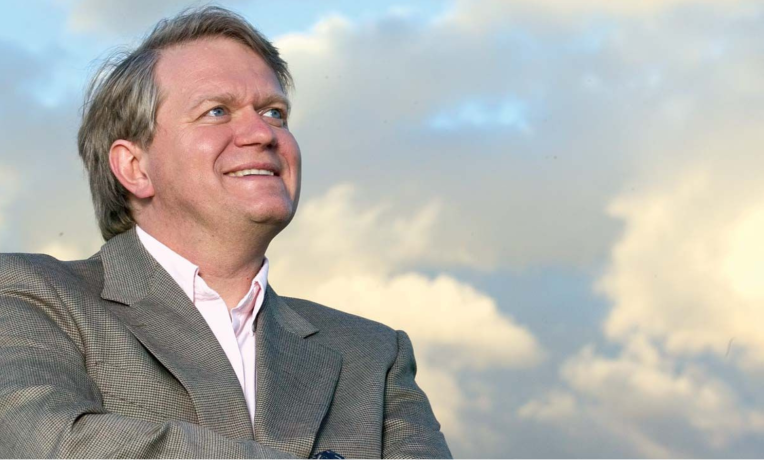Time is running out – scientific cooperation is needed to address global challenges

Nobel Prize winner and President of the Australian National University urges governments to strengthen their commitment to science cooperation.
As an astronomer, international research cooperation is part of my DNA. When we were awarded the Nobel Prize in 2011 for the discovery of the accelerating universe, it was the efforts of members on two teams from all continents except Antarctica that made our breakthrough possible.
Astronomers have long benefitted from extensive collaboration because telescopes are scarce. When shared they provide access to specific instruments and parts of the sky that no single facility provides. Collaboration has allowed us to grow as a globally connected community that has adopted open standards, software and practices that are truly global, and which benefit our science enormously.
This is now at risk.
We are now seeing, for the first time in recent memory, a slow retreat from what has until now been a continual increase in international scientific collaboration. A lot is at stake if this trend continues. International cooperation in foundational research efficiently fills an ocean of knowledge that can be used to help advance humanity. Work is openly shared so that it can be rigorously tested, not duplicated, and taken in all the directions possible for the translation so sought after by our governments. This shared knowledge helps create a shared scientific identity, which in turn helps break down the barriers to the world’s most talented minds. It enables us to build discovery from people’s scientific strengths from all over the world, rather than each country having to have critical mass in everything. It means a brilliant idea that emerges from one of the nearly 8 billion people living on Earth has a reasonable chance to be shared the world over for our collective benefit.
International cooperation has a long history of being driven from the bottom up. Many of us work in collaborations around the world, despite the difficulties imposed by research funding regulations, administrative burden and other barriers. We do it because it allows us to do our science better, faster, and cheaper – something that is demonstrated in the citation metrics that are all the rage with research administrators around the world. But top-down scientific collaboration has its role as well. Without it, we would be without major international scientific infrastructure like CERN, LIGO and JWST that have been a critical foundation for the advancement of my field.
While major scientific infrastructure is relatively well managed across the world, supporting international scientific collaboration remains problematic. The EU Horizon Europe program stands out as a success by unifying the complex network of EU countries’ research efforts into a coherent mass, thereby lowering the barriers to international scientific collaboration with demonstrable benefit to its members. While Horizon Europe has been very progressive at enabling those from outside the EU to be substantially involved, either by directly including developing countries or through developed countries investing in becoming associated with the program, few non-European countries have taken up the offer. I, and my fellow scientists in Australia continue to press for Australia to become an associated country. But at this point, we and our fellow scientists in other countries, have not convinced our governments. Sadly, our researchers continue to face the high hurdle of the un-coordinated funding of research that creates double-jeopardy for any joint proposal, and creates major barriers for substantive joint projects.
The next several decades will test humanity. Global sustainability challenges mean the world is depending on research and its translation to deliver the solutions for a prosperous future. These solutions need global nuance. What happens in the Amazon, the Congo or Indonesian rainforests affect us all. So does rapid warming in Siberia, the Yukon and Greenland. It is only through international collaboration with a wider variety of partners that will get the local knowledge necessary to solve the many critical issues we face. We would also be wrong to think that the big ideas that shape the future will only emerge from Europe or North America. A vibrant, open, highly globalized research community will better tap the knowledge of the collective intellect of humanity.
We are not working in a zero-sum regime; global scientific cooperation raises all boats against the incoming tide of global sustainability challenges. But for science to deliver, we need to share our knowledge, and work on key projects collectively and coherently. This means the barriers to global science need to come down, whether they be administrative, lack of investment or lack of trust. Current geopolitical uncertainties are fracturing our community, thereby impeding progress and making life even more difficult. If we are to achieve a sustainable prosperous future for humanity, global scientific cooperation will need to achieve heights never before achieved. We need the world’s governments to double-down on science cooperation, now. Time is running out.
Brian Paul Schmidt
Bio
Professor Brian P. Schmidt is the Vice-Chancellor and President of the Australian National University
2011 Nobel Prize laureate in physics, Schmidt was an astrophysicist at the ANU Mount Stromlo Observatory and Research School of Astronomy and Astrophysics before becoming Vice-Chancellor. Prof. Schmidt received undergraduate degrees in Astronomy and Physics from the University of Arizona in 1989, and completed his Astronomy Master’s degree (1992) and PhD (1993) from Harvard University. Under his leadership, in 1998, the High-Z Supernova Search team made the startling discovery that the expansion rate of the Universe is accelerating. Fellow of the Australian Academy of Science, The United States Academy of Science, and the Royal Society, he was made a Companion of the Order of Australia in 2013. He won other prestigious scientific awards, including the 2006 Shaw Prize in Astronomy, the 2007 Gruber Prize in Cosmology, and the 2015 Breakthrough Prize in Fundamental Physics.

